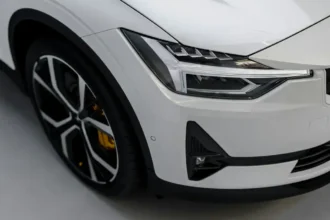Owning a high mileage vehicle comes with its unique set of challenges. Are you struggling to keep your car running smoothly as the miles pile up? High mileage cars can often face issues that lower mileage vehicles might not, but with the right car maintenance tips, you can ensure that your trusted ride remains reliable for years to come.
This article will guide you through essential maintenance tips specifically designed for high mileage vehicles, helping you save money and extend the life of your car.
Understanding High Mileage Vehicles
A high mileage vehicle is typically classified as one that has traveled over 100,000 miles. As your car ages, it becomes more susceptible to wear and tear, requiring extra attention to maintain its performance and reliability. Understanding the unique needs of high mileage vehicles is crucial for effective maintenance.
Read More: How to Replace Your Car’s Windshield Wipers
Why Car Maintenance is Crucial for High Mileage Vehicles
Car maintenance is essential for high mileage vehicles for several reasons:
- Preventive Care: Regular maintenance can prevent minor issues from escalating into costly repairs.
- Enhanced Performance: Well-maintained cars perform better, providing a smoother and safer driving experience.
- Increased Resale Value: Keeping your car in good condition can significantly increase its resale value.
Key Car Maintenance Tips for High Mileage Vehicles

1. Regular Oil Changes
Changing the oil regularly is one of the most crucial aspects of car maintenance for high mileage vehicles. Old oil can become contaminated and lose its ability to lubricate the engine effectively. Here’s how to manage your oil changes:
- Frequency: For high mileage vehicles, consider changing the oil every 3,000 to 5,000 miles, or as recommended by your owner’s manual.
- Use High Mileage Oil: Consider using high mileage oil, specifically designed to help protect older engines by reducing leaks and oil consumption.
2. Keep an Eye on Fluid Levels
Maintaining proper fluid levels is essential for the overall health of your vehicle. Here’s what to check regularly:
- Coolant: Check the coolant level regularly to prevent overheating.
- Brake Fluid: Ensure that the brake fluid is at the appropriate level for safe braking.
- Transmission Fluid: Low transmission fluid can lead to transmission failure. Check and change as needed.
3. Inspect and Replace the Air Filter
A clean air filter ensures that your engine receives the right amount of air for optimal performance. Here’s how to keep your air filter in check:
- Inspection: Check your air filter every 10,000 miles or during oil changes.
- Replacement: Replace the air filter at least once a year, or more frequently if you drive in dusty conditions.
4. Monitor Tire Health
Tires are crucial for your vehicle’s safety and performance. Regular tire maintenance is essential for high mileage vehicles:
- Rotation: Rotate your tires every 5,000 to 7,500 miles to ensure even wear.
- Pressure: Check tire pressure monthly and keep it at the recommended levels.
- Alignment: Have your alignment checked if you notice uneven tire wear or if the car pulls to one side.
5. Brake System Maintenance
The braking system is vital for safety. High mileage vehicles may experience more wear on brake components. Pay attention to the following:
- Inspect Brake Pads: Check your brake pads every 10,000 miles for wear.
- Replace Brake Fluid: Change brake fluid every two years to prevent moisture buildup and maintain braking performance.
- Listen for Noises: Be alert for any squeaking or grinding noises while braking, as they indicate potential issues.
6. Battery Care
The battery is often overlooked but plays a crucial role in starting your vehicle. Here’s how to maintain it:
- Clean Connections: Regularly check and clean battery terminals to prevent corrosion.
- Check Age: Replace your battery every 3 to 5 years, or sooner if you notice signs of weakness.
- Test Battery: Have your battery tested annually, especially if it’s more than three years old.
7. Timing Belt and Serpentine Belt Replacement
These belts are critical for engine operation and should be replaced according to your manufacturer’s recommendations:
- Timing Belt: Inspect the timing belt for signs of wear, such as cracks or fraying, and replace it every 60,000 to 100,000 miles.
- Serpentine Belt: Replace the serpentine belt every 50,000 to 70,000 miles or if you notice any cracks.
8. Engine and Transmission Maintenance
High mileage vehicles can face unique challenges with engine and transmission components:
- Regular Inspections: Schedule regular inspections to catch any potential issues early.
- Transmission Fluid Changes: Change the transmission fluid according to your owner’s manual, typically every 30,000 to 60,000 miles.
9. Interior and Exterior Care
Maintaining the appearance of your vehicle is also part of car maintenance:
- Wash Regularly: Clean your car regularly to prevent rust and paint damage.
- Wax: Wax your vehicle at least twice a year to protect the paint and maintain shine.
- Interior Care: Clean the interior regularly, including vacuuming and conditioning leather or upholstery.
FAQs About Car Maintenance for High Mileage Vehicles
Q: What defines a high mileage vehicle?
A: A high mileage vehicle typically has over 100,000 miles on the odometer.
Q: How often should I perform maintenance on a high mileage vehicle?
A: Regular maintenance should be performed every 3,000 to 5,000 miles or as specified in your owner’s manual.
Q: Can I use regular oil in a high mileage vehicle?
A: While you can, it’s advisable to use high mileage oil to better protect older engines.
Q: How can I improve the fuel efficiency of my high mileage car?
A: Regular maintenance, proper tire inflation, and avoiding aggressive driving can improve fuel efficiency.
Q: Is it worth maintaining a high mileage vehicle?
A: Yes, with proper maintenance, high mileage vehicles can continue to run well and provide reliable transportation.
Conclusion
Proper car maintenance is essential for high mileage vehicles to ensure safety, reliability, and longevity. By following these car maintenance tips, you can keep your vehicle running smoothly and enjoy many more miles on the road. Regular inspections, timely replacements, and attentive care can make a significant difference in the performance and lifespan of your car.
Remember, a well-maintained vehicle is not just about avoiding problems; it’s about enhancing your driving experience and ensuring peace of mind on every journey.








